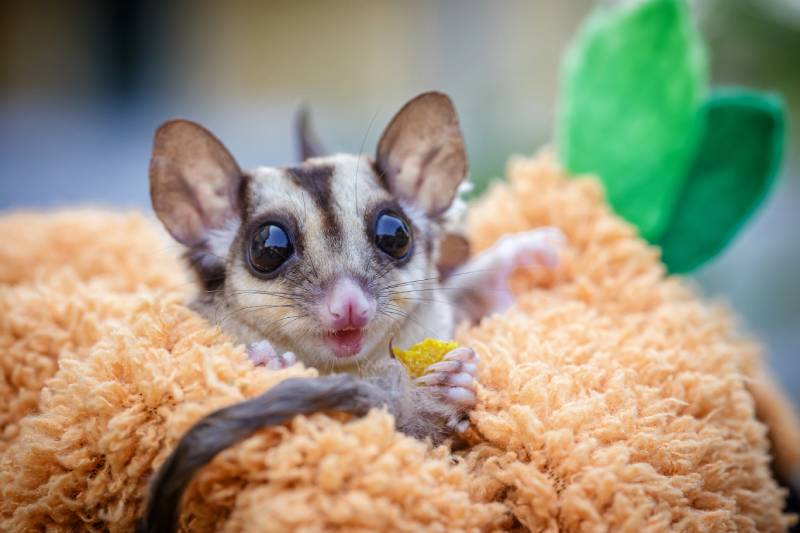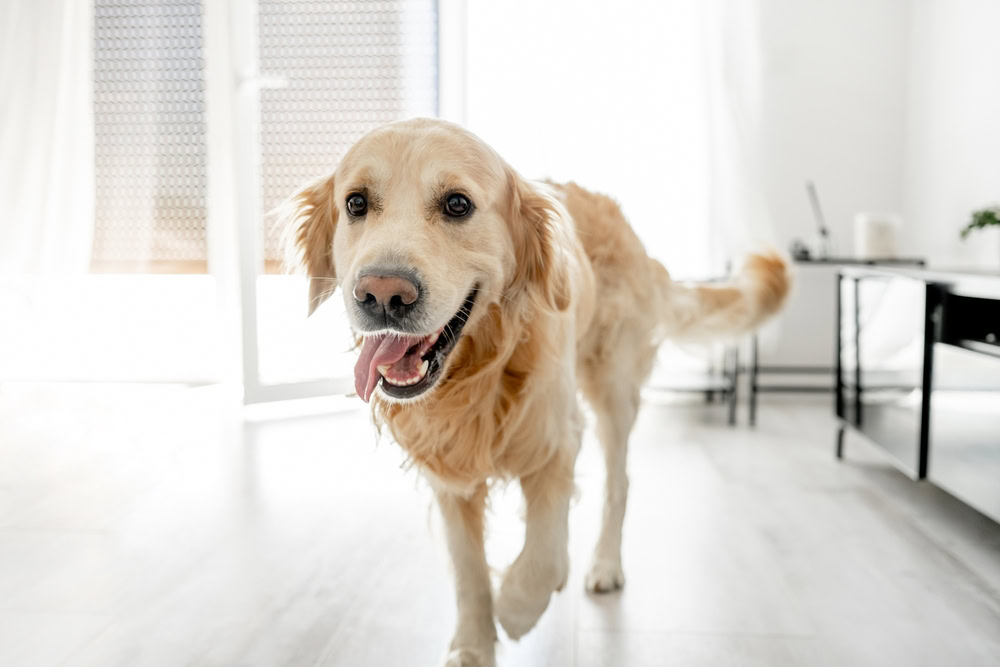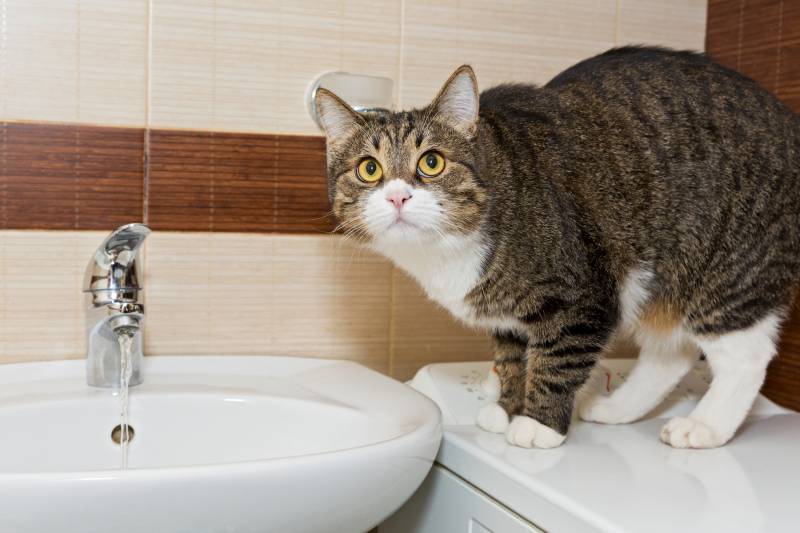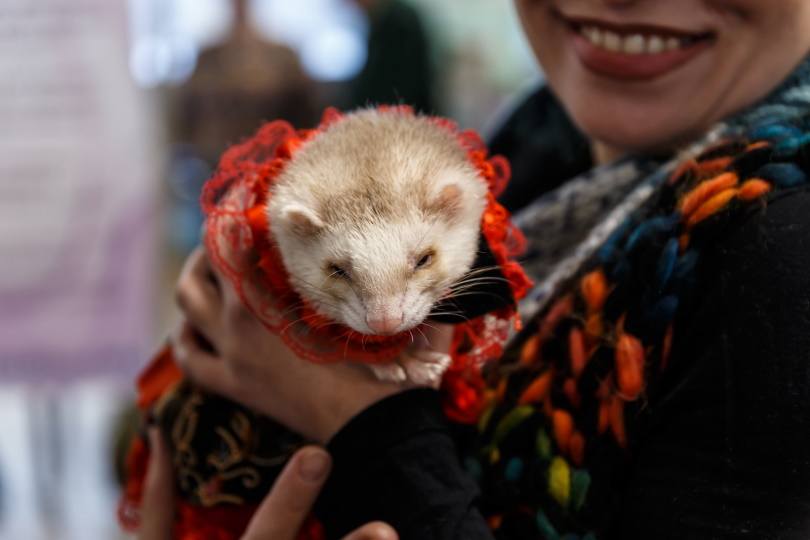VET APPROVED

The information is current and up-to-date in accordance with the latest veterinarian research.
Learn more »Click to Skip Ahead
Sugar gliders are fascinating little creatures. They’re relatively new to the pet world, and many people think the big-eyed, bushy-tailed animals are rodents, but they actually belong to the marsupial family. They keep their babies (or joeys) in tiny pouches, much like a kangaroo!
Sugar gliders make interesting pets, and one way to ensure your pet is not stressed or unwell is by observing their behavior and listening to their sounds. Sugar gliders make all sorts of noises to convey their mood, one of which is purring.
Sugar gliders emit a bubbling, almost undetectable purr when they are very content, relaxed, and comfortable (much like a cat would). This is adorable on its own, but sugar gliders will purr when they feel safe, and to hear one purring with you is a good indication of just how content they are in your presence.

What Other Sounds Do Sugar Gliders Make?
Generally speaking, a sugar glider isn’t a loud pet, and most of their vocal repertoire only comes out in full effect in periods of stress or a confrontation they’re not accustomed to (such as a visit to the vet). Well-socialized pets are generally very quiet, and therefore, if you notice your pet making sounds unexpectedly, it is advisable to investigate the underlying cause of the sounds.
Sugar gliders make several other sounds, often used in specific situations or for certain reasons. These noises range from very soft purring or chittering to loud and very obnoxious “barking,” but while all sugar gliders make these noises, some individuals are quieter than others.
1. Crabbing
Despite its bizarre name, this sound has nothing to do with the sea. Some sugar glider owners think that crabbing sounds like a hoard of locusts converging on a crop, but others describe it as someone squeaking a dog toy repeatedly.
This strange noise undulates in pitch and volume and means the sugar glider is trying to scare a threat away by making itself seem big, intimidating, and aware of the threat. Because they would have to constantly be on the lookout for their natural predators in the wild, captive sugar gliders can make this noise when they feel threatened in unfamiliar situations or environments.
This is one reason why many new sugar glider owners will hear the noise a lot while their sugar glider is still getting accustomed to their new home.
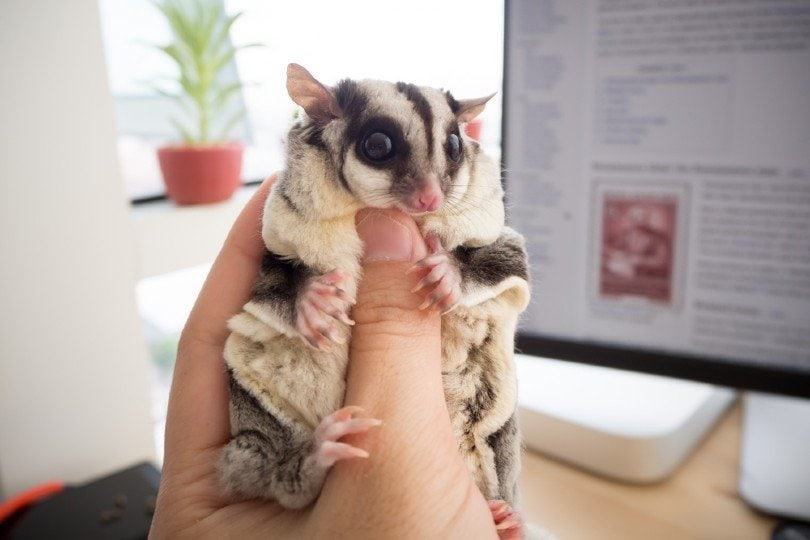
2. Barking
Something so small shouldn’t be able to make so much noise, right? Despite sounding silly, a sugar glider can and often does bark for several reasons.
Typically, sugar gliders bark when they’re extremely stressed, suddenly roused from their sleep, or generally upset. A well-adjusted and socialized pet would not vocalize as such, and at most times, these sounds would only present themselves if your pet was suddenly startled.
They may also bark at humans if they need something, such as something to eat or water bowl refilling. This can sometimes be difficult to handle, particularly if your sugar glider barks at night. To combat this, anecdotally, some owners say keeping a night light on can help to alleviate the barking in the dark.
3. Chirruping/Teeth Chattering
Chirruping is a “happy” sound that a sugar glider can make, which is somewhat similar to the wheeking a happy or excited guinea pig can make. This high-pitched chirping means that your sugar glider is very excited to see you and can even mean that your little furry friend is expressing a strong bond towards you.
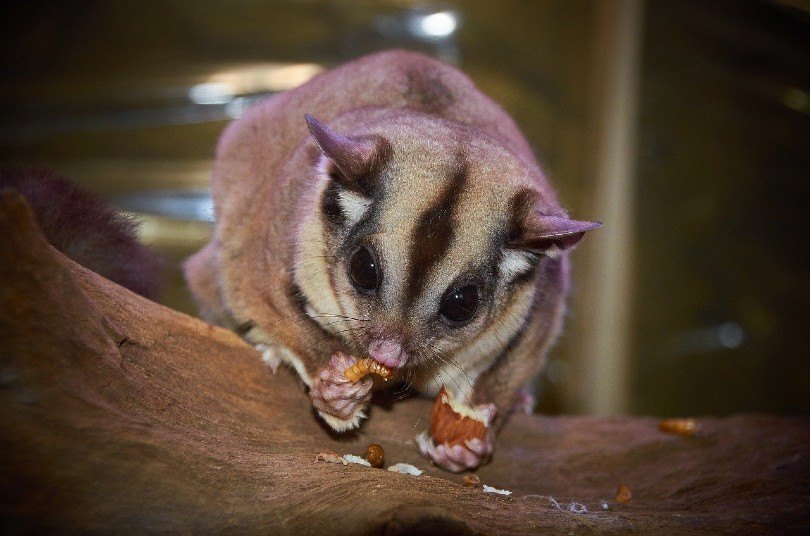
4. Hissing/ Sneezing
While it may seem strange, sugar gliders can often be heard hissing or producing a sneeze-like sound when cleaning themselves. Sugar gliders wash their coats by spitting into their paws and rubbing the spit over their bodies, and the “sneeze” is the sound of them spitting into their paws.
Hissing is slightly different, and it’s not to be taken as a sign of aggression or a warning as it is in cats. Hissing can be used to communicate with other sugar gliders during play (particularly rough and tumble play). However, this can sometimes become a little overzealous and lead to actual fighting, so keep an eye out for any signs of actual aggression.
While sneezing is usually reserved for grooming, remember to listen closely to your sugar glider’s normal vocalizations, as sneezing or wheezing can be a sign of respiratory distress or illness, which a vet should promptly address.

Mother and Baby Noises
Because of their social nature, sugar gliders also make sounds for their offspring or parents. These sounds are rarely heard from pet sugar gliders (unless you breed them), but they were too adorable not to mention.
Joeys (baby sugar gliders) will cry for their mothers, which is a particular sound that resembles a whine. Mother sugar gliders will, in return, sing to their babies, which is a soft and lilting call that soothes the little one.


Conclusion
As we have seen, sugar gliders purr and emit other distinct sounds. The purr isn’t as loud as a cat’s, but it is just as hearty and signifies the same warmth and contentment expressed by our feline friends.
See also:
- DIY Hamster Cages You Can Build Today (With Pictures)
- DIY Reptile Enclosures You Can Build Today (With Pictures)
Featured Image Credit: sabza, Shutterstock
